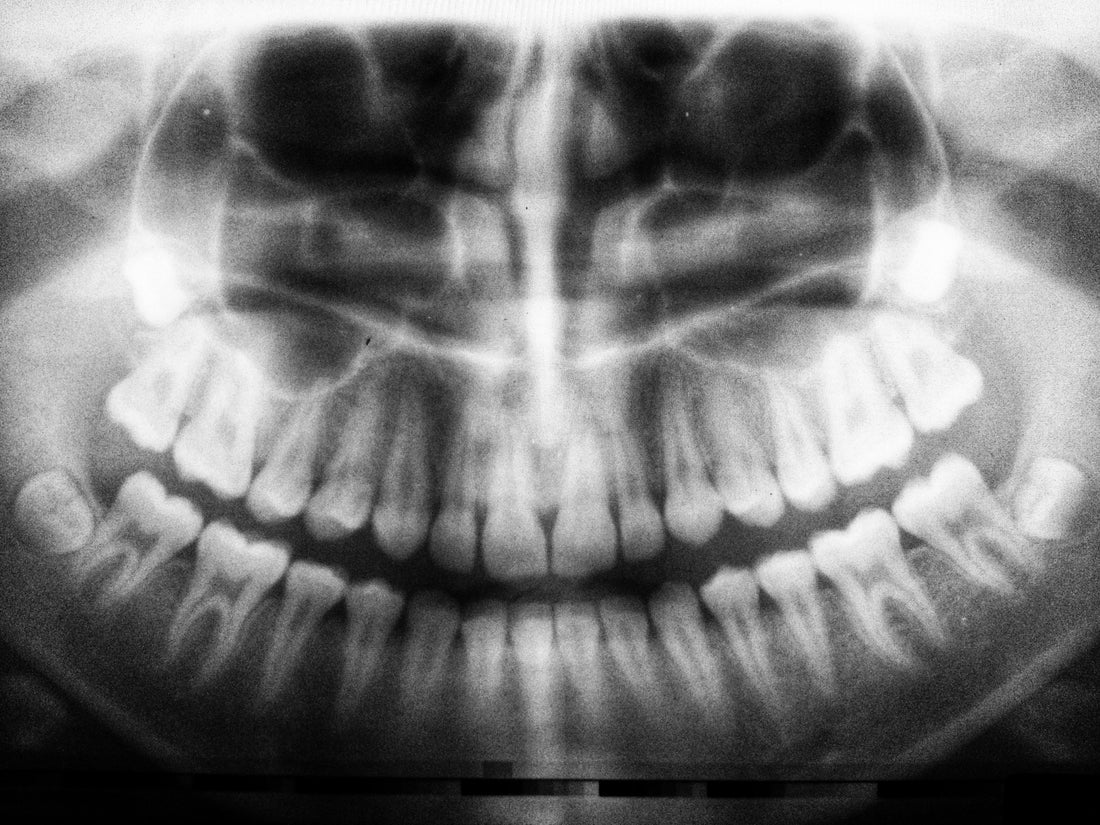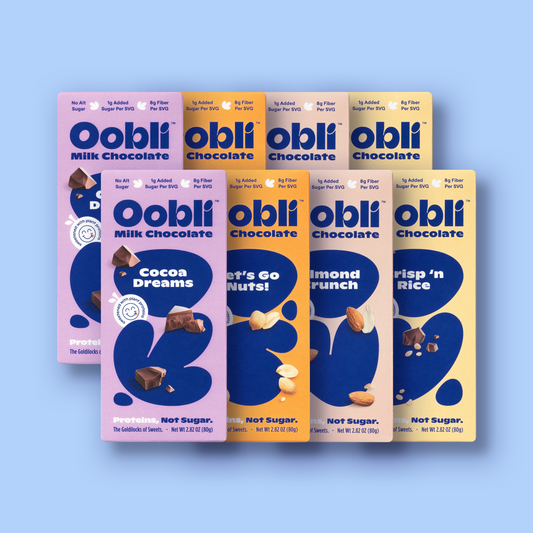One of the first things we associate sugar with is being bad for our teeth. But is the same true for sugar replacements like sucralose? Many people use artificial sweeteners to reduce their sugar intake, but they often come with their own set of problems.
So, is sucralose bad for your teeth? In this article, we’ll explain everything you need to know about sucralose and teeth. We’ll also cover the other health issues that often come with sucralose, and provide some safer alternatives that don’t come with the same health issues.
So, does sucralose damage teeth? Let’s take a closer look at how this sweetener affects your pearly whites.
Is Sucralose Bad For Your Teeth? The Sucralose Effect on Teeth Explained
While sugar substitutes like sucralose are marketed as having minimal calories and reduced risks of tooth decay, is that really the case, or is sucralose bad for your teeth? Let’s explore the sucralose effect on teeth in more detail.
Will Sucralose Hurt Teeth? A Word on Sucralose Teeth Sensitivity
Does sucralose damage teeth? Sucralose is a chlorinated derivative of sucrose, widely used in sugar-free and low-calorie products. While it passes through the digestive system largely unchanged, some people experience tooth sensitivity or discomfort after consuming products with sucralose.
We don’t know exactly why this sensitivity occurs in some people, but if you do notice tooth sensitivity after consuming sucralose-containing products, it might be best to limit your consumption of sucralose as much as possible.
Does Sucralose Rot Your Teeth?
One of the major concerns regarding sucralose is whether it can lead to tooth decay and cavities. So, does sucralose rot your teeth? Sucralose itself is non-fermentable, meaning oral bacteria cannot readily metabolize it to produce harmful acids that damage tooth enamel.
However, many products that contain sucralose also have other ingredients, such as acids or preservatives, that can contribute to tooth damage. In fact, some of the ingredients in diet sodas and low-sugar drinks can do more damage to your teeth than sugar itself.
How Other Artificial Sweeteners Affect Your Teeth
Not only is sucralose bad for your teeth, but what about other sweeteners that have also gained popularity in recent years? Aspartame, saccharin, and stevia also have different effects on dental health. So, is aspartame bad for teeth?
Aspartame is naturally high in acid, which can erode enamel and cause tooth decay. As a result, many people turn to aspartame detoxing to protect their oral health. When it comes to stevia vs aspartame, stevia appears better for your teeth, but it comes with its own issues.
Before switching to stevia, make sure you understand the effects of consuming stevia while pregnant, and also the stevia weight gain links. Plus - prepare yourself because stevia tastes bad!
Other Problems With Sucralose Beyond Your Oral Health
Not only is sucralose bad for your teeth, but it can bring a number of other health issues with it as well. Beyond sucralose and teeth, here are some of the other health issues you need to be aware of if sucralose is part of your diet.
Sucralose and the Gut Microbiome
Recent research has taught us more about the relationship between artificial sweeteners, including sucralose, and the gut microbiome. The gut microbiome, a complex ecosystem of microorganisms living in our digestive tract, plays a crucial role in digestion, immunity, and more.
Some studies suggest that sucralose may alter the composition and function of the gut microbiome. This alteration could have implications for metabolism, immunity, and even mental health, and may explain why some people experience sucralose intolerance symptoms.
Sucralose’s Controversial Role in Metabolic Health
One of the hottest debates surrounding sucralose is its potential impact on metabolic health. Some studies have suggested that artificial sweeteners, including sucralose, might be associated with weight gain, increased appetite, and altered glucose metabolism.
That’s right - artificial sweeteners like sucralose may actually cause us to gain weight, when many people are consuming them for weight loss purposes. It’s also important to understand the effects of sucralose on keto diets - the sweetener isn’t as keto-friendly as it was once believed.
Behavioral and Cognitive Effects of Sucralose
Sucralose consumption has also raised questions about its potential impact on behavior and cognitive function. Some studies have shown that artificial sweeteners may influence food preferences and cravings, leading us to crave calorie-dense, less nutritious foods.
There are also links between sucralose and migraines, with the intense sweetness of sucralose possibly having the ability to disrupt our brain chemistry, leading to headaches and migraines in some people.
Finding a Better Alternative to Protect Your Teeth
Given the issues with sucralose teeth sensitivity, as well as all the other negative health effects of sucralose and other artificial sweeteners, many people have begun the search for aspartame free drinks and erythritol substitutes. At Oobli, we’ve got the perfect solution waiting for you!
What Are Sweet Proteins?
Sweet proteins are a revolutionary new way of sweetening the best sugar free drinks. These natural compounds are found in certain exotic fruits, and can be up to 5,000 times sweeter than regular sugar. This means that only a tiny amount is needed to sweeten your favorite foods and drinks.
The benefits of sweet proteins are that they don’t come with the erythritol side effects or the health issues that other artificial sweeteners can bring. They’re safe for your teeth, don’t cause migraines or disrupt your gut microbiome, and are keto-friendly.
Plus, sweet proteins as a sugar substitute require much less land and water to produce than standard sugar, making them an environmentally friendly alternative. How are sweet proteins made? At Oobli, we use precision fermentation protein, similar to how beer, wine, and cheese are made.
Taste and Feel the Difference at Oobli!
Here at Oobli, we’ve spent years perfecting our use of sweet proteins. We can now harness the extreme sweetness of these powerful, natural proteins to re-create guilt-free, delicious versions of your favorite treats.
Our low sugar tea contains all-natural ingredients and just 7 grams of sugar in each 16-ounce can. With three delicious fruity flavors to choose from (or a variety pack if you can’t decide!), you’ll wish you made the switch to our antioxidant-rich, refreshing iced tea sooner!
Our guilt-free chocolate is rich, creamy, and decadent. It’s low in sugar and high in fiber, but don’t let that fool you! These bars are perfect for when you’re craving a bite of sweetness but don’t want the calories, or the side effects that come with artificial sweeteners.
Closing Thoughts on Sucralose Effect on Teeth
So, does sucralose damage teeth? Yes. Not only is sucralose teeth sensitivity an issue that many people have to deal with, but the acid that’s included in many products containing sucralose can cause serious tooth decay.
Unfortunately, other artificial sweeteners bring the same issues as sucralose and teeth, along with a long list of unwanted side effects like metabolic disturbances, migraines, and even weight gain.
Luckily, we have the perfect solution for you here at Oobli. By sweetening our tea and chocolate with sweet proteins, we’ve created treats that are naturally low in sugar, won’t rot your teeth, and don’t come with the harmful side effects of artificial sweeteners. Oobli is a breath of fresh air!
Protect your teeth and your overall health without sacrificing your taste buds - shop Oobli today!




